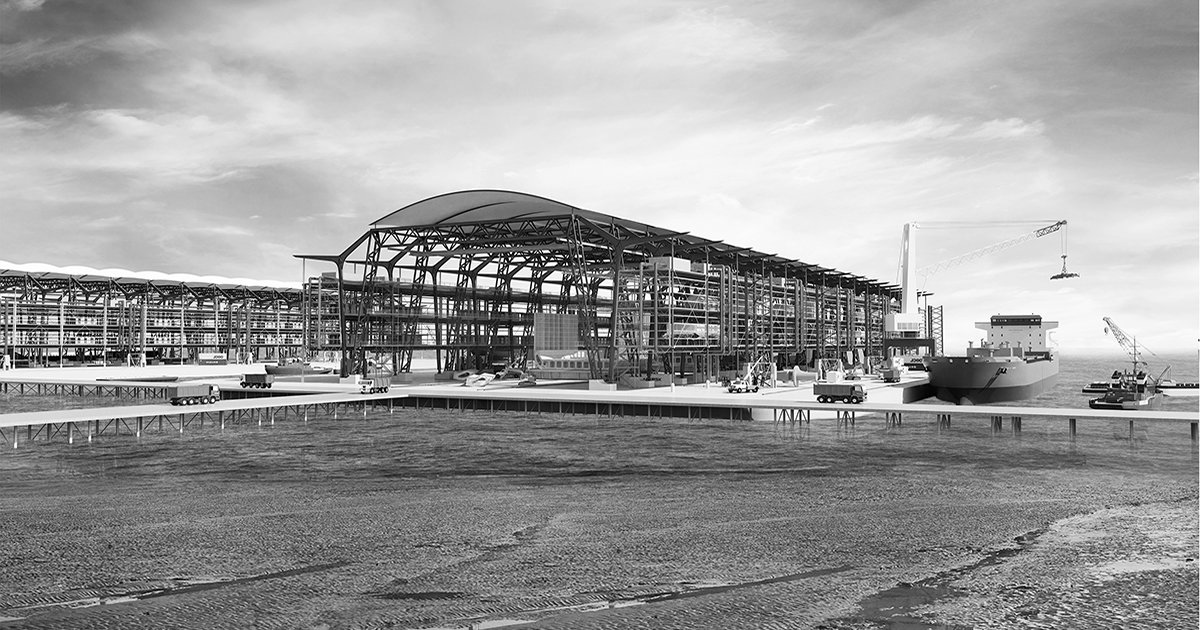
The focus of this thesis project is to invent a new prototypical mobile shipbreaking facility, as an instant solution for the environmental and health and safety issues in the shipbreaking industry in Alang, India; improving local working and living condition and as a catalyst for future local development. Ultimately, it is anticipated it could become a universal solution for currently underdeveloped shipbreaking industry in developing countries around the world.
At present, the global centre of the ship breaking industry is in South Asia, specifically Bangladesh, India, and Pakistan. Due to the constant exposure to toxic materials and fumes, the average lifespan of a South Asia shipbreaking worker is 40 years old. Shipbreaking is regarded as one of the most dangerous jobs in the world.
The proposal provides Alang, the biggest ship graveyard in the world, with a standard process for dismantling end-of-life ships into recyclable steel scrap; improving workers’ working conditions and preventing the industrial activity from damaging environment. Through standardized environmentally sound processes and the use of Alang’s existing shipbreaking market, the proposal is an architectural intervention that could have the impact on both social and economic conditions. Steel scrap will be recycled, processed and reproduced for the new construction of local community and more facilities; a catalytic process will happen in Alang and future permanent construction will start to emerge inland. Therefore, a sustainable industry can be established in Alang.